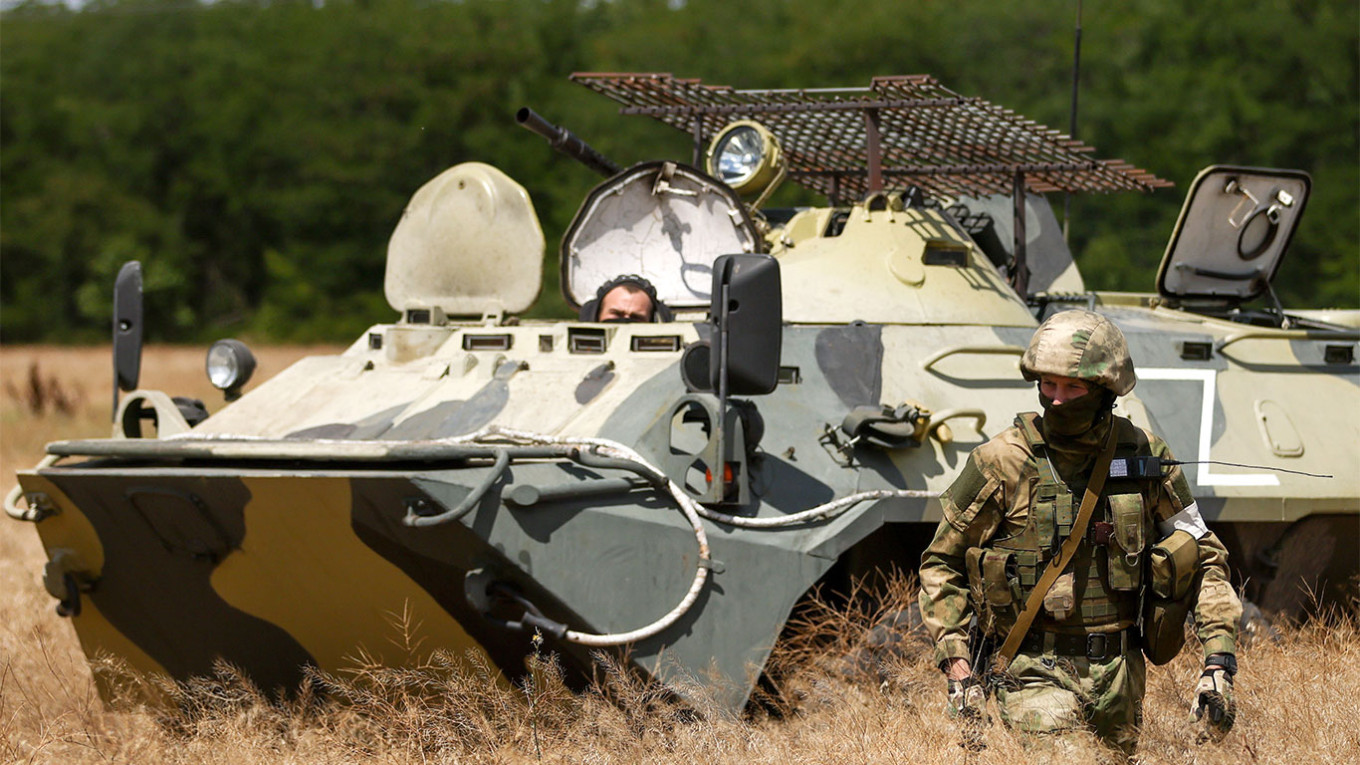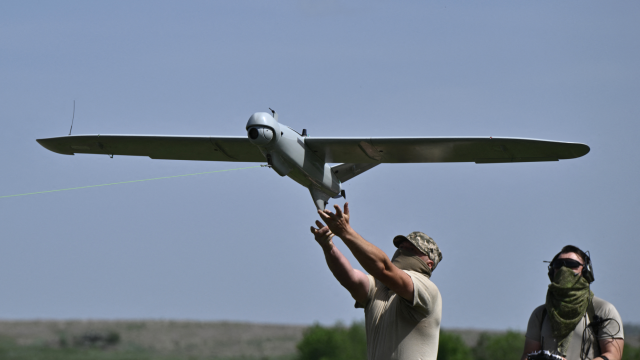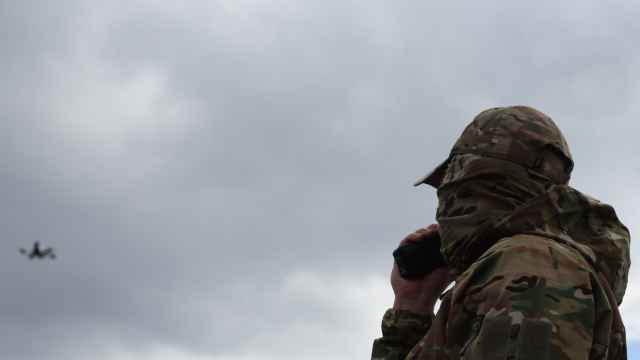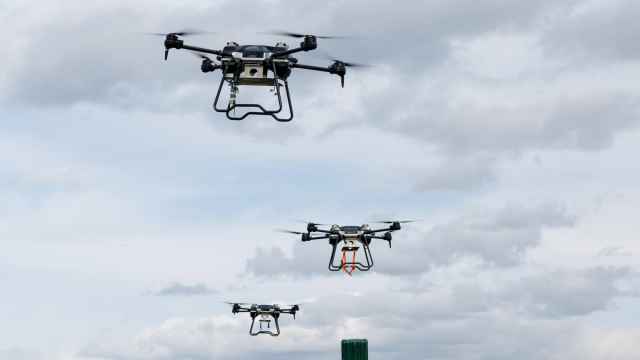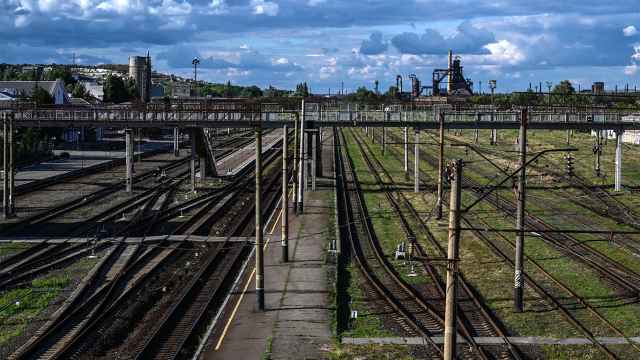A significant Ukrainian offensive to recapture Russian-occupied territories in its southern regions is seen as increasingly unlikely by experts as Moscow moves reinforcements to the area and Kyiv re-focuses on targeting Russian military capacity in the rear.
Ukrainian officials have repeatedly threatened an imminent attempt to recapture the city of Kherson, which was seized by Russian troops shortly after the beginning of the invasion in February.
But there are still few signs of preparations for a major infantry assault.
“If there was a window of opportunity to strike the Russians in this region a few weeks ago, I think that it has now passed,” said Konrad Muzyka of the Poland-based Rochan Consulting agency.
Neither side has made any significant territorial gains in recent weeks as both the Ukrainian and Russian armies reposition troops and grapple with logistical problems.
As part of an apparent attempt to head off a Ukrainian attack, Russia has transferred thousands of soldiers from eastern to southern Ukraine in recent weeks, reportedly including some of its elite airborne forces that were fighting near the strategic city of Sloviansk.
“Russians had about 10 to 15 battalion tactical groups around Kherson. Now they have doubled that,” said Muzyka. Each Russian battalion tactical group has up to 1,000 men.
About 20,000 Russian soldiers are now in Kherson itself, according to analysts.
Ukrainian forces made incremental gains towards Kherson earlier this month, retaking a number of villages and striking three strategic bridges over the nearby Dnipro River that are the only supply routes for Russian troops in the city.
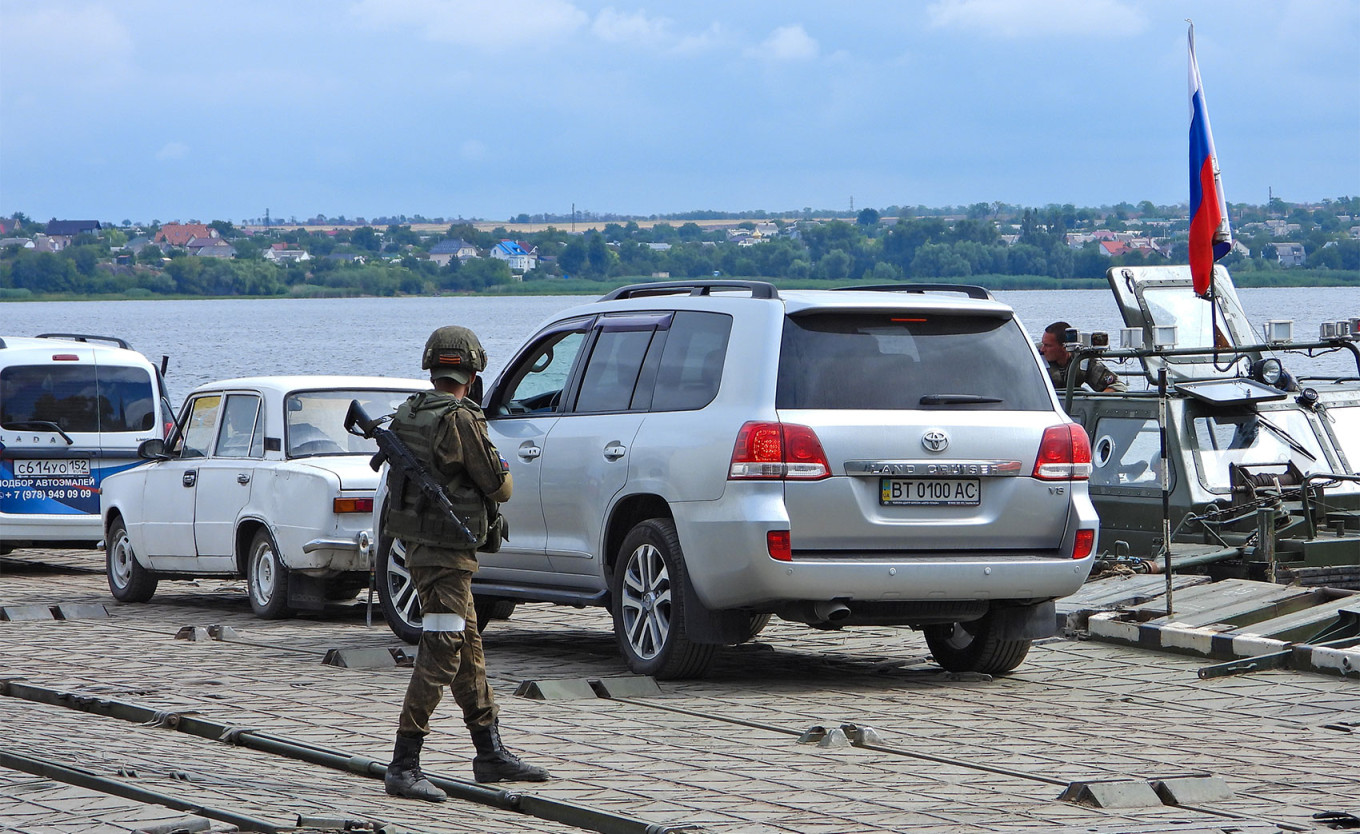
Apparently fearing Kherson could be cut off, Russia has reportedly slowed down its offensive in eastern Ukraine in order to be able to shift men and material to the Kherson area.
Russian soldiers inside Kherson currently depend on two pontoon ferry crossing points for resupply after Ukrainian missile attacks seriously damaged key bridges, the British Defense Ministry said in a weekend intelligence assessment.
Instead of pushing forward with a major ground assault, Kyiv has switched to a strategy of using Western-supplied long-range weapons to attack Russia’s military infrastructure behind the frontlines in both occupied southern Ukraine and the Crimean peninsula.
“We’re using a strategy to ruin their stocks, to ruin their depots, to ruin their headquarters, commander quarters. It’s our answer to their meat-grinder tactics,” Ukrainian Defense Minister Oleksii Reznikov told The Washington Post this week.
On Tuesday, a number of explosions allegedly carried out by Ukrainian saboteurs destroyed a Russian ammunition depot and power infrastructure in Crimea. Footage published by the Mash Telegram channel showed damage to nearby rail tracks caused by the blasts.
The explosions came days after the Saki air base in western Crimea also suffered a series of blasts, causing serious damage to military planes and other equipment.
“The compromise seems to be that Ukraine realizes with this new weaponry they can really interdict Russia’s supply lines and try to create a situation indirectly where they can isolate the 20,000 Russian soldiers inside Kherson,” said Robert Bell, a former NATO official and professor at Georgia Tech University..
Some observers, like Bell, believe that Kyiv may not have ever intended to launch a major offensive in the south at all.

Instead, they suggest, Ukrainian officials talked up the prospect of an imminent attack in an effort to lure Russian forces away from the east of the country.
“Grinding artillery assaults in the Donbas were wearing down the Ukrainian army significantly,” said Bell.
“So it became important in terms of morale and to reduce concentration of Russian firepower in the Donbas to start talking about a counter in the south.”
After capturing eastern Ukraine’s Luhansk region in early July, Russian forces have continued to push toward the strategic cities of Kramatorsk and Sloviansk. However, the pace of their advance has slowed considerably, with few significant territorial gains.
The Russian military also faces significant manpower losses with as many as 75,000 Russian troops injured or killed in Ukraine since the start of the fighting in February, according to U.S. estimates.
A depleted Russian army spread thin across multiple fronts calls the feasibility of the Kremlin’s aim of “liberating” the Donbas into question, according to Dara Massicot, a senior researcher at the U.S.-based RAND think tank and a former senior analyst at the Pentagon.
“It is not clear to me that Russia's remaining forces can deliver the Kremlin’s revised and more limited goals of occupying and potentially annexing southern and eastern Ukrainian regions,” said Massicot.
But the current deadlock, with Ukraine seeking to win back occupied territory and Russia attempting to dig in across southern parts of the country, can’t last forever, according to Muzyka.
“A resolution to the situation will have to come in the next few weeks,” he said.
A Message from The Moscow Times:
Dear readers,
We are facing unprecedented challenges. Russia's Prosecutor General's Office has designated The Moscow Times as an "undesirable" organization, criminalizing our work and putting our staff at risk of prosecution. This follows our earlier unjust labeling as a "foreign agent."
These actions are direct attempts to silence independent journalism in Russia. The authorities claim our work "discredits the decisions of the Russian leadership." We see things differently: we strive to provide accurate, unbiased reporting on Russia.
We, the journalists of The Moscow Times, refuse to be silenced. But to continue our work, we need your help.
Your support, no matter how small, makes a world of difference. If you can, please support us monthly starting from just $2. It's quick to set up, and every contribution makes a significant impact.
By supporting The Moscow Times, you're defending open, independent journalism in the face of repression. Thank you for standing with us.
Remind me later.



